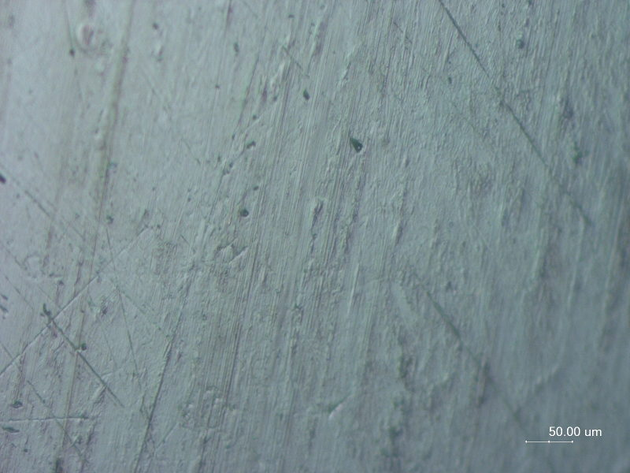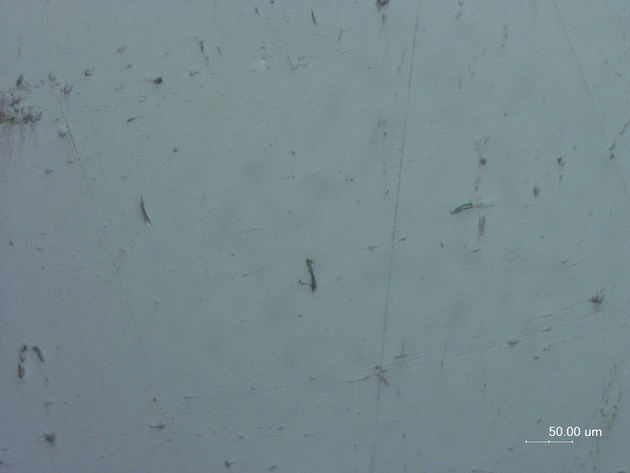How does rosin go stale?
To answer this, we teamed up with Open Labs at Malmö University in southern Sweden. By examining the surface structure and lipid content of rosins stored at various levels of humidity, we were able to observe the deterioration of rosin samples over time. What we observed is that while evaporation of oils and other additives from an entire rosin cake is a slow process, decay at the surface happens rapidly. Considering string players can only apply rosin to their bow hair using the rosin surface, the decay we observed is significant.
Violin Rosin Surface, 100x

Slides taken after 60 days of exposure
The above slides show two samples of a very popular brand of violin rosin. The rosin cake was purchased fresh from the manufacturer and split into samples to ensure consistency. The rosin was never used (i.e. applied to bow hair). The surface of the sample stored in a very dry environment quickly showed changes. Surface waxes and oils evaporated exposing a dry, crusty layer of resin. The surface of the humidified sample remained smooth, with the oils and waxes staying integrated.
After only 60 days the sample stored in a dry environment showed severe surface decay, while the humidified sample looked as it did the day it arrived to the lab.
What's in my rosin?
Chemically speaking, rosin is a solution wherein rosin makers blend resins with additives to achieve desired playing characteristics. The resins themselves contain natural oils, but additives like beeswax, essential oils, tree gums, solvents (and even precious metals) are often added to achieve for a richer, smoother sound than can be had with powdery resin alone.

Additives are there for a reason. They serve a purpose. They sweeten the sound and refine the grip. But they are often volatile natural compounds that evaporate readily from the rosin surface leaving behind a thin layer of 'stale' powdery grit that is subsequently applied directly to the bow hair.
How does Rosin Saver work?
Cigar enthusiasts know the importance of using a humidor. If the flavorful oils within the tobacco are allowed to escape, the result is a harsh and bitter tasting smoke. By heavily saturating the surrounding air with water vapor, the delicate oils have no space into which to evaporate. This same concept applies to Rosin Saver.

Rosin Saver surrounds your rosin with a constant level of humidity that is high enough to essentially halt the evaporation of additives from the rosin. This ensures that your bow hair only comes into contact with rosin that feels as fresh as the day it was made. The result is a consistent sound and feel on the string, regardless of the climate, stroke after stroke.



